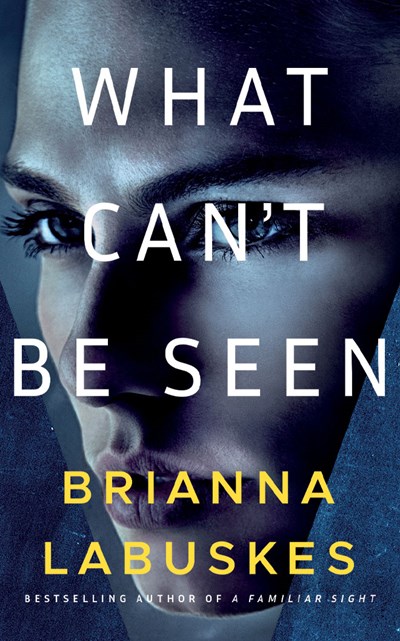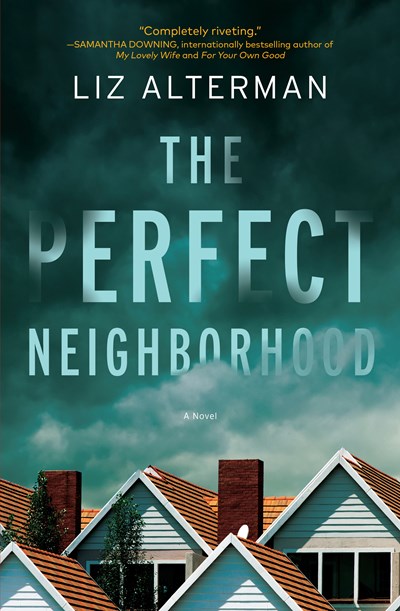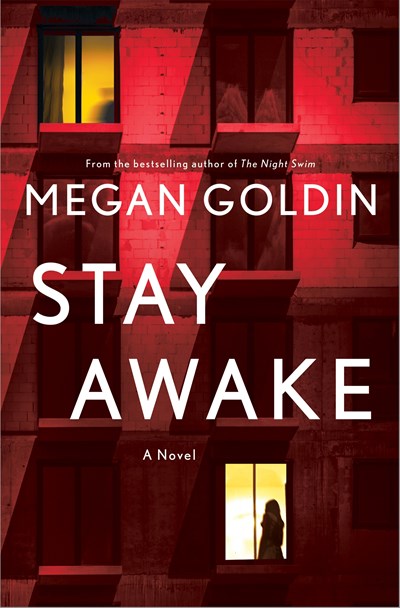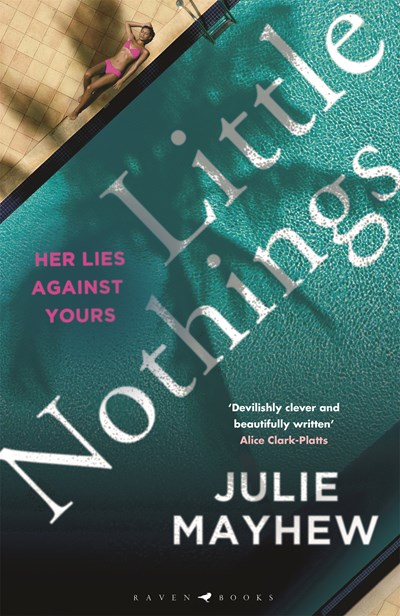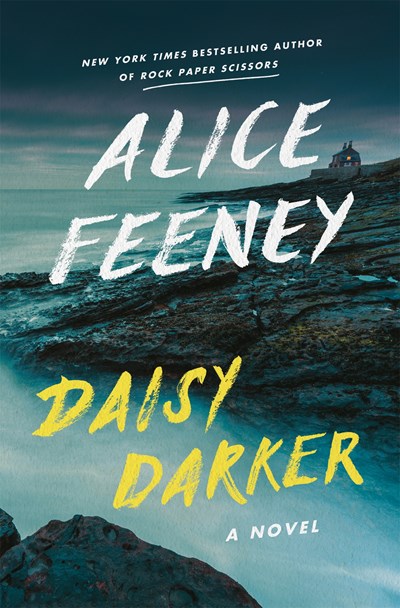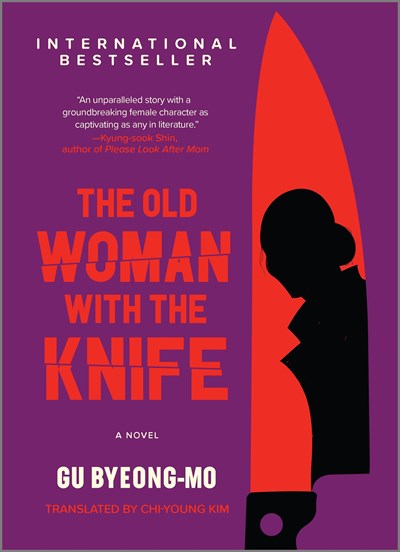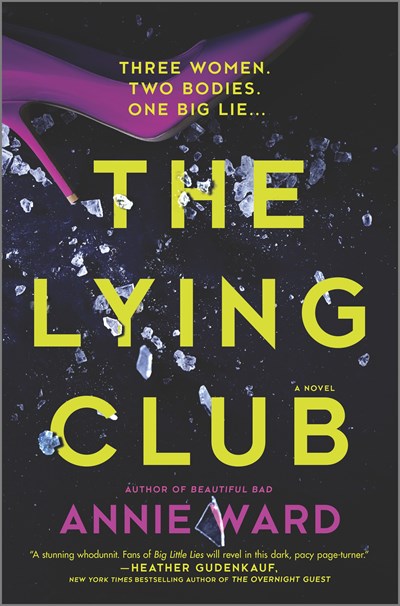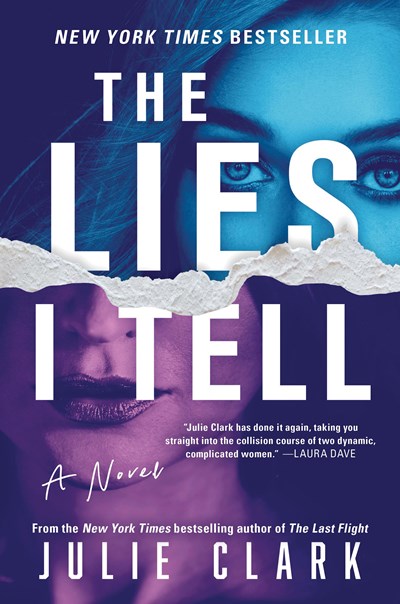Dr. Laina Landers is the sort of shrink anyone would want. She’s super smart, wonderfully compassionate, and completely devoted to her patients. So when the husband of a couple she is working with holds his wife hostage at gunpoint—an incident broadcast on live TV—Laina quickly gets to the scene. She saves them both, while also meeting investigative journalist Cal Murray. Empathetic? Check. Handsome? Oh, yes. Reliable? Totally. Which comes in handy, as Laina really needs a friend/lover she can depend on as her patients are receiving deeply unsettling “presents,” like a plastic fetus in a bottle of fluid, each with the same message: Watching you. More disturbing, the gift giver is relying on knowledge about the patients that can only be found in Laina’s notes from her sessions. But who would want to destroy Laina and kill her practice in the process? As Laina and Cal search for the possible culprit, the stakes get higher as the therapist herself is targeted. The I-didn’t-see-that-coming conclusion is guaranteed to make your head explode.
Psychological
What’s stranger than an eight-year-old Gretchen White standing over her murdered Aunt Rowan holding a knife dripping with blood? That child growing up to be a sociopath who works for the Boston police department and uses her access to investigate the crime, which she can’t remember. There’s a lot to learn here, and part of it is Dr. White’s lesson that her sociopathy is a neurodivergence, not a moral failing. Its core element—the inability to empathize with others—makes Gretchen an unlikely but effective psychologist, as her feelings don’t get in the way, as well as an oddly endearing villain. She’s highly aware of her emotional shortcomings, but others are too, and her vulnerability to the possible machinations of those surrounding this crime keeps the psychological twists coming. From the warped, rich family to the local woman desperate to find who murdered her sister—a separate crime that might be related to Aunt Rowan’s death—everyone’s a mess here, and everyone has motives and history that are painstakingly revealed and entwined. One for fans of Dexter and other characters we should loathe, but don’t.
On the surface, Oak Hill, New Jersey, is, yes, a perfect neighborhood. Perfect lawns, perfect homes, perfect families. A crack appears when we see local high-schooler Cassidy on a clandestine outing, running late to meet Billy, the kindergartener she babysits for when he walks home from school. He doesn’t show, and his disappearance reveals the hurt, deception, and toxic boredom lurking behind many of the tony town’s facades. Billy’s mother, Rachel, is overprotective; his father resents his younger wife for trapping him in this second marriage by becoming pregnant; his older stepbrother, a small-time drug dealer, barely acknowledges Billy. Cassidy, reviled in the papers as The Babysitter, is having an affair with a much older man. The local celebrities, has-been musician Chris and his actress wife, Allison, have just split up and she’s moved away with no explanation. As the investigation into Billy’s disappearance continues, his shattered family is the nexus of a town in turmoil, allowing Alterman to show how pressure and desperation can manifest in very different ways and result in vastly different outcomes. Billy’s disappearance isn’t the only crime, and the interpersonal stories as well as the crime-centered mysteries will keep readers shaking their heads in disbelief as they keep the pages turning, hoping for justice.
Goldin’s (The Night Swim) startling work immerses readers in the disorientation and vulnerability that is amnesia. Every time Liv Reese wakes up, she has no memory of the previous two years. Notes that she writes on her hands and Post-its on her doors and walls guide her to contact friends who can help and to find the precious journal that details each vanished day. She repeatedly learns afresh that she was injured two years ago, leading to her memory problems, while other terrible events from that time are slowly revealed. In the present, the awakening that opens the book sees her running from an apartment with a bloody knife. Did she hurt someone? Whose apartment was that? Why does it seem like a different season? Then the point of view switches to a dead body being found, and a chase is on that sees us switching back and forth in time from before the injury, when Liv was a nightlife-loving young New Yorker who worked at a high-status magazine, to a few days before the bloody-knife incident, when the past catches up to her with a vengeance. The displacement caused to Liv by her condition is visited on readers to fast-paced and thought-provoking effect here; the story is gripping too, all adding up to a top-shelf psychological thriller for fans of Alice LaPlante.
Michelle Miller finally got herself out of Lorida, Florida on a swimming scholarship and never looked back. Now, 15 years later, she’s returning to see her dying mother, and, unavoidably, confront her painful past. Back then, she was poor—she shared a bedroom in a trailer with her brother—and reclusive; she didn’t come alive until she met Sissy, a rich and rambunctious classmate. They were soon joined by Morrison, a queer punk rock kid, and their dysfunctional little family was complete. From shoplifting in department stores to hanging out in gay bars, Sissy offers fun in technicolor, but it comes at a price: possessiveness, dramatic mood swings, and ultimately violence. But it isn’t until she’s at college in Georgia that Michelle begins to understand how much of her youth Sissy destroyed, and how little of it she’ll ever get back. The surprising ending—with some extraordinary revelations—is downright healing. And while there is criminal behavior, it’s on the sidelines of the story, never at the center. A wonderful tale about the power of friendship to transcend evil that young adults should also appreciate.
Liv, a bored stay-at-home mother, is leading a double life. She’s been friendless for years, so when she meets other women at an overly earnest children’s music class who also think the event is ridiculous, she’s all in. Liv and her husband, Pete, are parents to a little girl, but soon Liv spends most of her spare time with Beth and Binnie, and then with a new addition to the group, Ange. The friends’ partners and children often take part too but are very much beside the point to the women, who seem almost to be reliving their teen years. The suffocating peer-pressured friendship is made worse when Ange joins, as she’s fond of backstabbing comments that are posed as jokes, and Liv walks on eggshells, fearing she’ll be rejected from her only friendship. Soon Liv and Pete, who are struggling financially, get into massive debt keeping up with expensive dinners and designer outfits that their friends insist they deserve. The pinnacle is a three-week trip to Corfu that is set up at first as a locked-room mystery, but then another person enters the drama, leading to a tantrum-and-booze loaded tragedy. This feels like a movie that you watch from between your fingers as everything goes dreadfully wrong, fast. Try if you enjoy girls’ trip stories.
An homage to Agatha Christie’s And Then There Were None that is both wryly humorous and deadly serious. The setting: a Victorian gothic house, named Seaglass, located on a tiny island off the Cornwall coast, accessible only during low tide. The cast: matriarch Nana, her son and ex-daughter-in-law, three adult nieces, a grandniece, and a family friend. The occasion: Nana’s 80th birthday, predicated to be her last. As the sun goes down, the tide rushes in, dinner is served, and then it’s time for Nana to read her will. Our narrator, and very much the center of the book, is Daisy, Nana’s youngest and favorite niece, who was born, in Daisy’s word, “broken,” with a heart condition she could die from at any moment. Nana—a wonder of a character—is a famous children’s book author, and Seaglass overflows with her designs and eerie, Edward Gorey-esque poems. The novel shifts between the family’s painful past and the nerve-wracking present, and as the night grows longer, and the revelations unfold, the carnage increases. The ending manages to shock, and while some readers may feel cheated by the turn of events, others will enjoy having to rethink the whole book. This book isn’t twisty, it’s demonic.
This startling work upends every stereotype of old ladies and killers. Known as Hornclaw, our protagonist is only 65 but welcomes the invisibleness of appearing elderly so as to better function as a disease control specialist: a hired killer. Under her baggy, mismatched clothes, Hornclaw has such a fearsome body that a TV producer at the gym asks her to be on a show about unusual people. But she fears being forced into retirement soon, a euphemism for being killed by the other specialists at the disease control agency. As we observe the abusive childhood that led Hornclaw to obsessively love her dog, Deadweight, but blithely kill strangers, we’re led toward a hairpin turn in her personality, when she finally cares for someone but it is part of a deadly trap. The story, which immerses readers into everyday life in Seoul, is made unforgettable by Gu’s language as she draws readers into the chilling, beautiful wanderings of Hornclaw’s mind, which flits from contemplating someone eating a peach (“she watches a perfect small world being smashed inside his mouth”) to considering the home of a newly butchered man (“the hallway to the living room seemed to loll like a dead person’s tongue”). For lovers of literary fiction and book clubs that will try something different.
The recent college-admissions scandal comes to mind when meeting the rich, competitive seniors of Colorado’s Falcon Academy High School and their even more fiercely cutthroat moms. Former friendships are thrown to the side when Mia and Sloane, best friends since grade school, both try for a soccer scholarship to UCLA. Their moms, who’ve spent countless hours together at soccer-pitch sidelines over the years, are increasingly at war too. It’s all eye-rolling entertainment for the staff at the school, who must please the moneyed families no matter how ridiculous their obsessions. Probably the most jaded by these mind games is Natalie, a secretary to the principal who has a front seat to the show and whose personal life is slowly being followed down the drain by her professional one. With so many dysfunctional characters and moral rollercoasters, readers won’t know whom to point at or root for when a body is found in the gym. Ward (Beautiful Bad, 2019) does a great job of portraying the disarray caused by meanness and greed, and when characters show unexpected sides, she deftly makes that switch. Note that there’s sexual abuse “off camera” here. For Liane Moriarty’s legions of followers.
Ingenious grifter. Con-artist extraordinaire. Feminist Robin Hood. Add to this just plain old brilliant and you have the incredible character of Meg Williams. When her mother gets conned out of the family home by a sleazeball boyfriend—then dies shortly afterwards—18-year-old Meg vows this will never happen to her, and she flips the narrative and figures out how to steal from men. She begins small—seducing a high-school principal—but slowly works her way up the food chain as she deftly separates men, one more despicable than the last, from their money. When enough of their assets are in her accounts, she suddenly disappears, off to another city, another persona, another man. While Meg thinks she’s getting away with it all, one woman, journalist Kat Roberts, is watching her. Kate has her own reasons to expose Meg, and the two of them dance around each other as Meg lays the groundwork for her biggest con yet, worth millions of dollars and putting a political career at risk. With two super-strong characters, a remarkably credible and terrifying depiction of high-level scamming, and a pace that’s relentless, Julie Clark has given fans of the domestic thriller a real treat.


